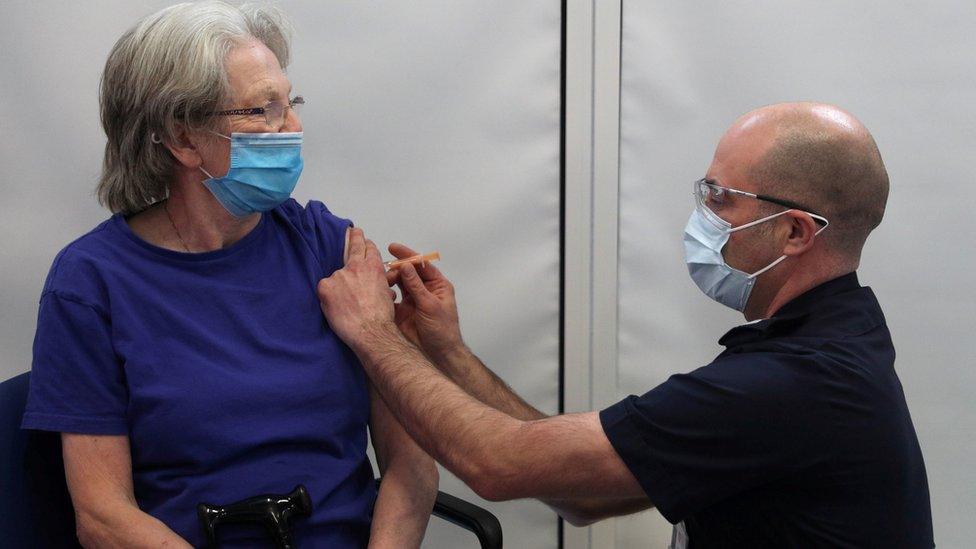Covid: How many people have been vaccinated in Wales?
- Published
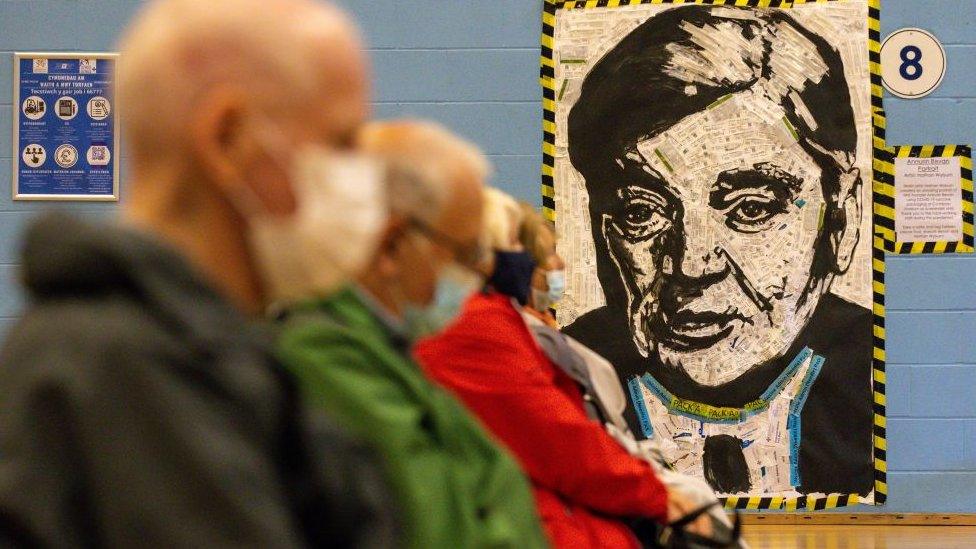
Booster jabs are now the priority in Wales, amid concerns over the Omicron variant
The Covid-19 vaccination programme in Wales is being ramped up again, amid concerns over the new Omicron variant of the virus.
It now means a booster jab will be offered to all adults who have not yet had one, with the delay between second and third jabs cut from six months to just three.
According to figures published by Public Health Wales, there are 2.6 million adults aged 18 and over in Wales eligible for the top-up vaccination.
At the end of November, there had been over 850,000 booster doses administered in Wales - that is 32.7% of those now eligible.
So far, health officials have been targeting the booster vaccinations in the same way they administered the first jabs - with the most vulnerable, elderly and care and health workers the priority.
Wales is hitting a 79% uptake in those jabs.
The figure is slightly behind Scotland, but well ahead of both England and Northern Ireland.
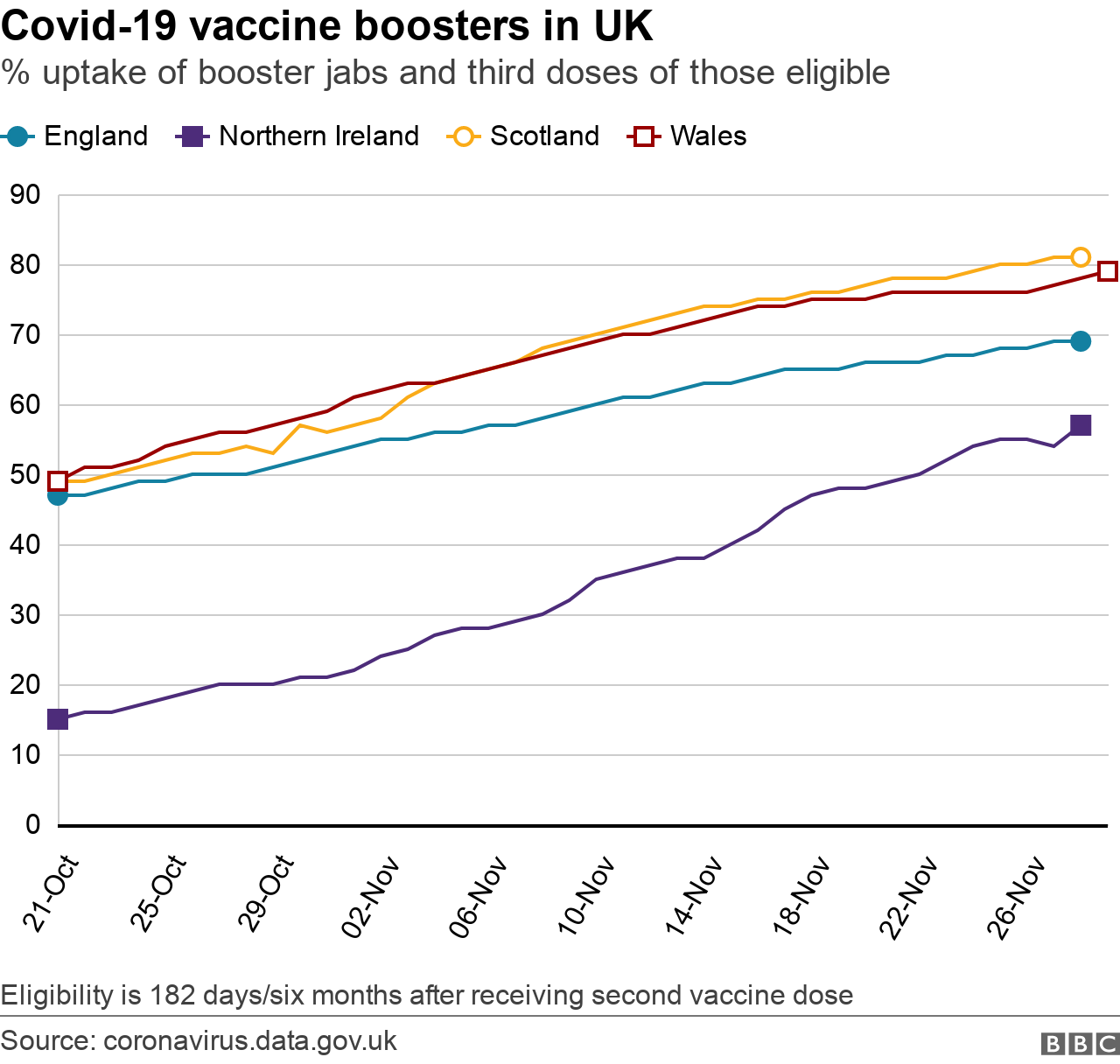

It is a similar picture when it comes to the actual booster doses delivered across the four UK nations - Scotland is ahead of Wales, followed by England and then Northern Ireland.


A further 50,000 are classed as having severely compromised immune systems, due health conditions or treatments for illnesses such as cancer.
They have already been receiving third doses as a matter of course, rather than the top-up booster that are now being given to all adults in Wales.


How is each health board doing with delivering vaccines?
Public Health Wales publishes weekly updates on how many vaccines have been administered in each health board area.
The last full report was published up to 21 November.
Wales' largest health board covering the whole of north Wales has delivered the most full courses of vaccination.
There were 1,033,168 first and second jabs delivered in total across the Betsi Cadwaladr University Health Board area.
Next was Aneurin Bevan University Health Board, which has given 892,421 first and second doses.
The health board was also in the lead on booster vaccinations going into the last week of the month, with just over 9,000 booster jabs.


How do the UK nations compare in the vaccine programme?
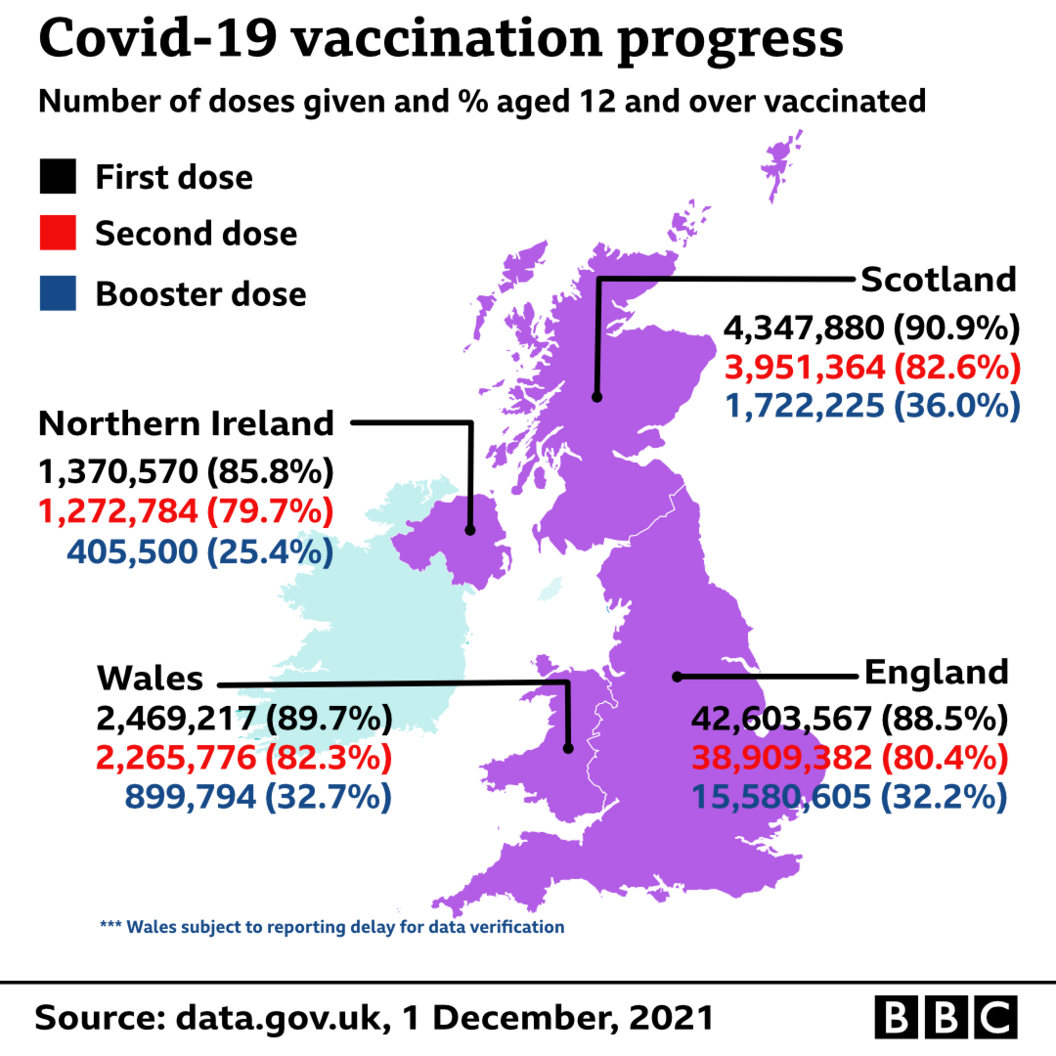

As of 1 December, Scotland continued to be in the lead across all vaccinations, including delivering the highest percentage of booster jabs.
Wales was next, with 82.3% of the eligible population double vaccinated, and a third have received their boosters.
Who is prioritised for Covid jabs?
Since the rollout of the very first vaccination in Wales, health officials have followed strict priorities for delivering the jabs - getting them to the most vulnerable and exposed first.
Top of the list have been the elderly, health and care workers, and those with underlying health issues.
In Wales, it now means:
97.1% of care home residents have had both jabs - a further 82% have had a booster
92.2% of care home workers are also fully vaccinated - 63% are boosted
95.2% of all those aged 80 and over in Wales are fully jabbed - 82.8% have been given their booster
91.3% of those extremely vulnerable have been double vaccinated - while 66.6% have had their third shot
95.9% of health care workers are fully vaccinated, and 73.7% boosted
During the vaccine programme, changes in advice has seen jabs offered to younger people - firstly those who were 16 and 17, and now all aged from 12.
There remains a 12 week break between first and second jabs for most young people, and as they started in the programme later, the number of second doses has been lower.
In those two groups, 75.3% of the 16-17 year olds have had their first dose, and 32.3% a second vaccination.
The youngest age group has seen 53.8% of the 12 to 15-year-olds receive at least one vaccination. The rollout to this group only began in October, so most will not be eligible for a second vaccination until the new year.
Related topics
- Published30 November 2021
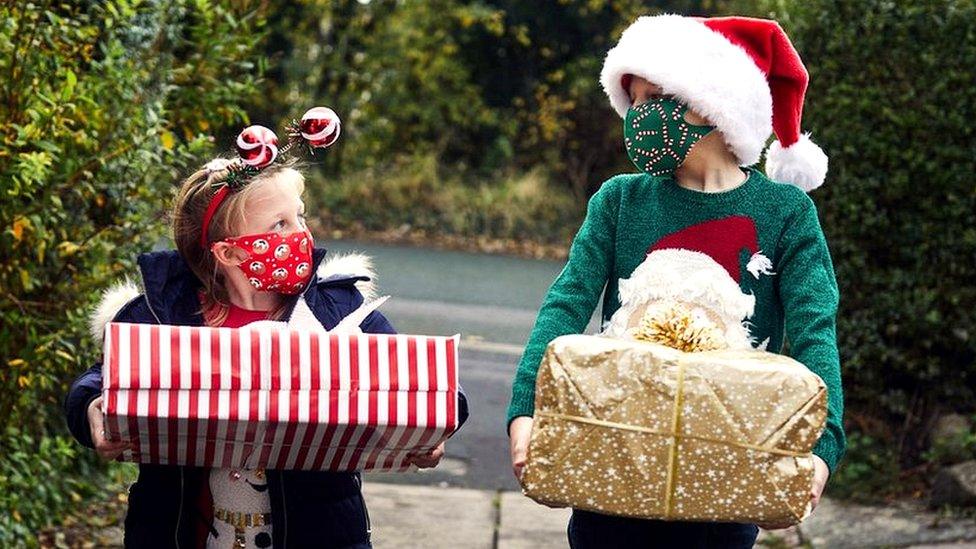
- Published2 April

- Published30 September 2021
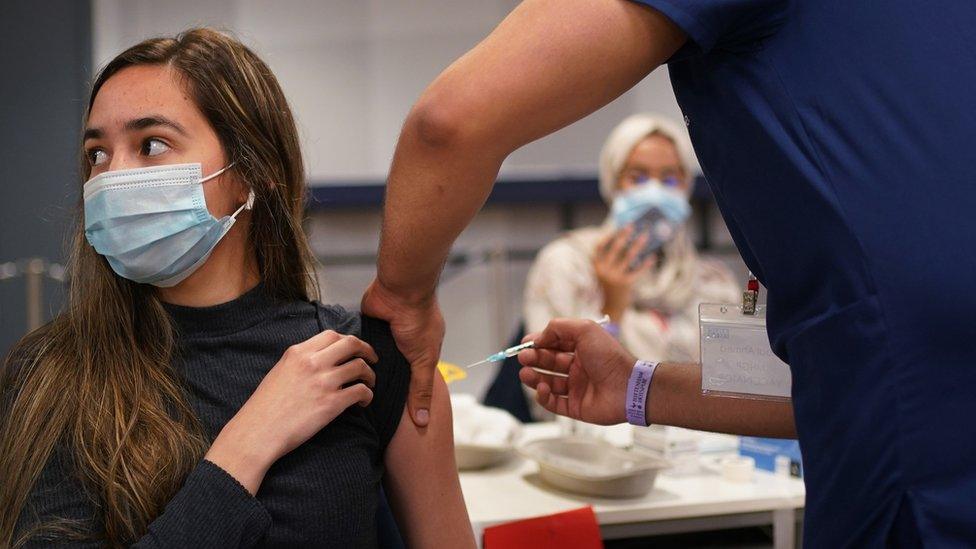
- Published25 June 2021
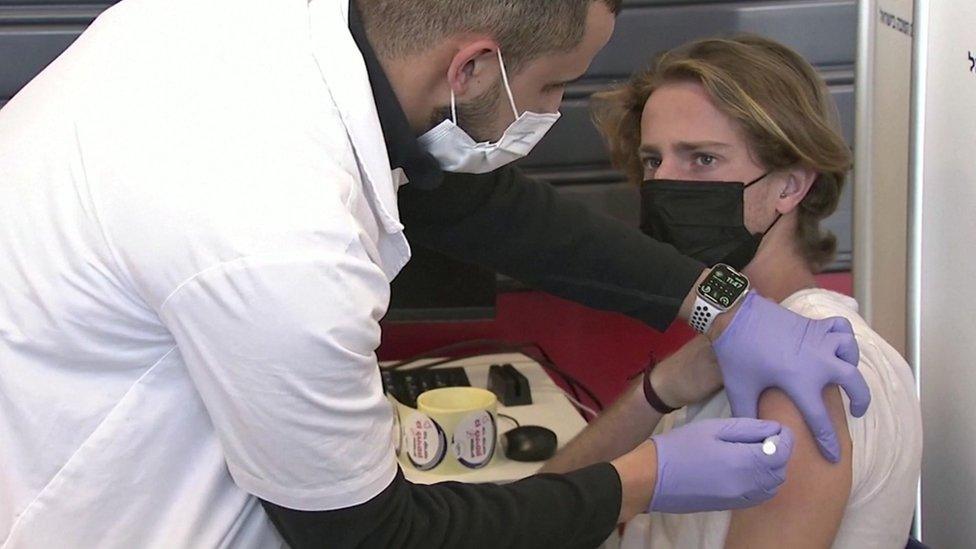
- Published16 May 2021
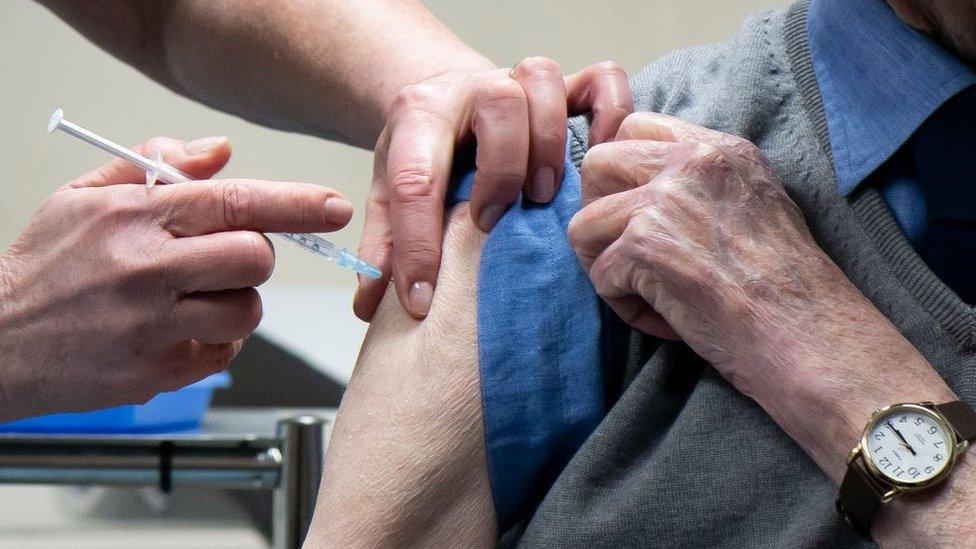
- Published23 May 2021
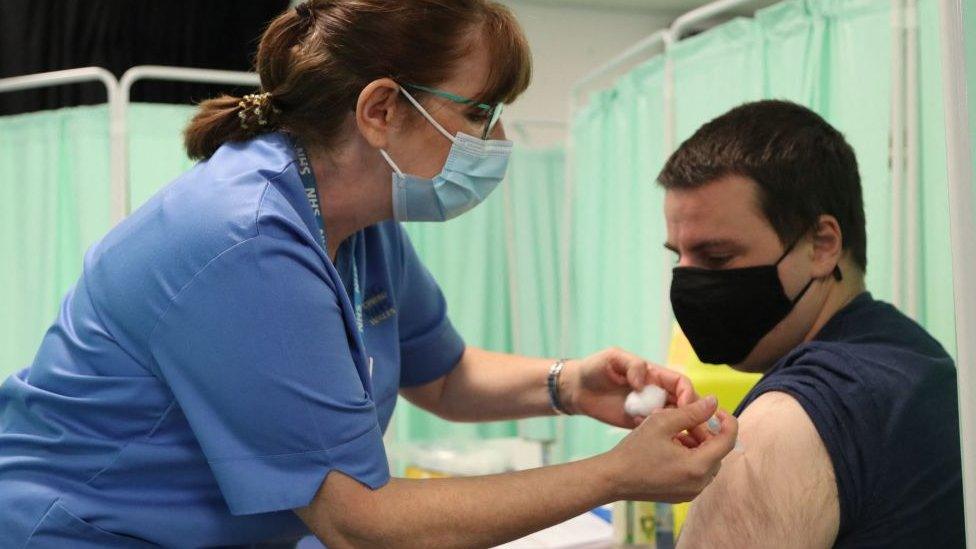
- Published27 May 2022

- Published28 May 2024

- Published27 February 2021
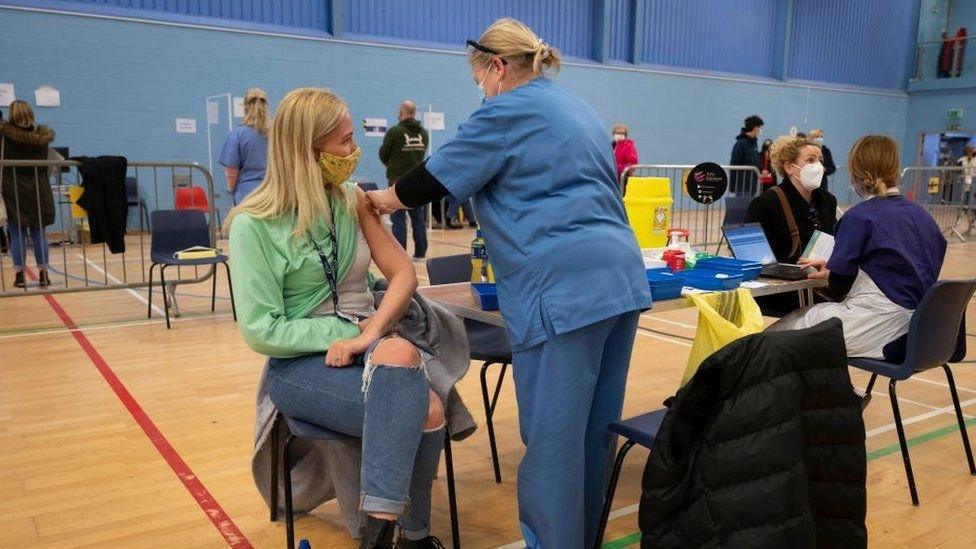
- Published6 February 2021
